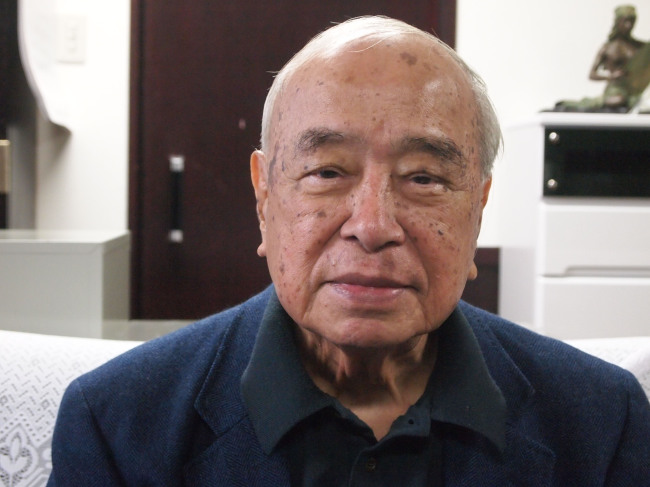The Washington Times
TOKYO — Masahide Ota, who served as a governor of Okinawa from 1990 to 1998, is a Social Democratic Party member of the upper house of the Japanese parliament. He earned a master’s degree in journalism at Syracuse University in New York and taught that subject and Okinawa history at the University of the Ryukyus before entering politics. Mr. Ota spoke with reporter Takehiko Kambayashi of The Washington Times about the U.S. military presence in Okinawa and Japan’s relations with China and South Korea.
Question: On Monday, Prime Minister Junichiro Koizumi hinted he plans to visit Yasukuni Shrine again.
Answer: It is extremely regrettable. He must consider carefully that he dares to stir strong feelings against Japan among the people in China and South Korea. As a prime minister of a country, he should consider not only what he wants to do, but the consequences of his action.
Q: Sixty years ago, at the age of 19, you were fighting against the Americans as a soldier on Okinawa.
A: Yes. Recently, the further I looked into what had happened during the Battle of Okinawa, the more I found the battle much more ferocious than had been thought. I also learned that many Okinawans deeply distrusted the Japanese soldiers alongside whom they fought.
But Japanese soldiers [on the island] didn’t get much-needed help from mainland Japan because, to protect the mainland, leaders in Tokyo didn’t want to waste even one soldier on Okinawa. Thus, a supply convoy was not dispatched when desperately needed.
Q: Ten years ago, when you were the governor of Okinawa, a 12-year-old Okinawan girl was raped by three U.S. servicemen, which provoked massive protests.
A: At that time, I said to the people of Okinawa: “I apologize to you all for failing to protect the girl’s human rights and dignity.”
When I flew to Tokyo to protest to then-U.S. Ambassador to Japan Walter F. Mondale, he quickly apologized and offered to set up a hot line to link himself and me. Some Japanese leaders and bureaucrats, however, told me: “You are going too far,” or “It is not that big a problem.” They didn’t even try to feel other people’s pain.
Moreover, the victim’s family and I received letters and several $100 checks from six psychopathologists in the United States. They offered to give the victim three-year treatment without any charge. No one in Okinawa and Japan did that. We very much appreciated the offer, but her family ended up politely declining it.
Q: To ease Okinawan anger, the United States and Japan promised in the 1996 final report of the Special Action Committee on Okinawa (SACO) to reduce the U.S. military presence there. The two governments, however, have failed to implement it, although Mr. Koizumi has urged again that they do so.
A: The content of the report has already changed.
First, the report never says that a proposed alternative airport [to U.S. Marine Corps Futenma Air Station] is for joint military-civilian use.
Second, according to the SACO report, the alternate facility is to be “approximately 1,500 meters long,” but they are now saying it will be much longer than 2,000 meters. So the proposed base will become much larger than originally planned.
I asked Mr. Koizumi if he had ever seen the final SACO report. He failed to respond to my question, saying only that the plan is going forward.
When the government changed the plan, it should have told the public. There has been no such explanation whatsoever.

